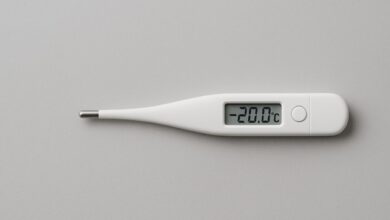
The kidneys play a vital role in our overall well-being, filtering waste products, regulating fluid balance, and maintaining proper electrolyte levels in our bodies. However, several factors can affect kidney health, leading to various consequences. In this article, we will explore the causes, effects, and remedies for maintaining optimal kidney function. Understanding these aspects will help individuals make informed choices and take proactive steps towards safeguarding their kidney health.
Causes of Kidney Issues
- Chronic Conditions: Chronic conditions such as diabetes and hypertension are major contributors to kidney problems. Prolonged high blood sugar levels and elevated blood pressure can damage the kidneys over time.
- Kidney Infections: Infections in the kidneys, such as urinary tract infections, can lead to inflammation and impair kidney function if left untreated.
- Medications and Toxins: Certain medications, toxins, and long-term exposure to harmful substances like heavy metals or solvents can negatively impact kidney health.
- Dehydration: Inadequate fluid intake can strain the kidneys, impair their ability to filter waste, and lead to the formation of kidney stones.
- Genetic Factors: Some kidney issues, such as polycystic kidney disease, can be inherited from family members.
- Lifestyle Factors: Unhealthy habits like smoking, excessive alcohol consumption, and a high-sodium diet can contribute to kidney damage.
Effects of Kidney Issues
- Decreased Kidney Function: Kidney problems can reduce the organ’s ability to filter waste and maintain proper fluid balance, resulting in an accumulation of toxins and electrolyte imbalances in the body.
- Fluid Retention: Impaired kidney function can cause fluid retention, leading to swelling in the legs, ankles, face, or hands.
- High Blood Pressure: Damaged kidneys may disrupt the regulation of blood pressure, potentially leading to hypertension.
- Fatigue and Weakness: As toxins accumulate in the body due to impaired kidney function, individuals may experience fatigue, weakness, and a general sense of lethargy.
- Electrolyte Imbalances: Kidney issues can disrupt the balance of electrolytes like sodium, potassium, and calcium, potentially causing muscle cramps, irregular heartbeat, and bone disorders.
- Anemia: Damaged kidneys may reduce the production of erythropoietin, a hormone necessary for red blood cell production, leading to anemia and associated symptoms like fatigue and shortness of breath.
Remedies for Optimal Kidney Function
Stay Hydrated: Drinking an adequate amount of water helps maintain kidney health by ensuring proper fluid balance and facilitating waste removal. Aim to consume around 8 glasses of water per day, unless otherwise advised by a healthcare professional.
Eat a Balanced Diet: Adopt a diet rich in fruits, vegetables, whole grains, lean proteins, and healthy fats. Limit sodium intake to control blood pressure and reduce the risk of kidney issues.
Exercise Regularly: Engaging in regular physical activity can promote overall cardiovascular health and help maintain healthy blood pressure levels, which are crucial for kidney function. If you have disabilities, incorporating NDIS exercise physiology can customize these activities to individual needs, enhancing the overall benefits.
Limit Alcohol and Caffeine: Excessive alcohol and caffeine consumption can strain the kidneys. Moderation is key to preserving kidney health.
Quit Smoking: Smoking damages blood vessels, including those supplying the kidneys. Quitting smoking can significantly reduce the risk of kidney issues.
Control Chronic Conditions: If you have conditions like diabetes or hypertension, work closely with your healthcare provider to manage them effectively and prevent kidney complications.
Maintain a Healthy Weight: Obesity and overweight can increase the risk of kidney problems. Maintain a healthy weight through a balanced diet and regular exercise.
Manage Stress Levels: Prolonged stress can contribute to the development and progression of kidney issues. Implement stress-reducing techniques such as meditation, yoga, or engaging in hobbies to promote overall well-being.
Regular Health Check-ups: Schedule regular check-ups with your healthcare provider to monitor kidney function and detect any potential issues early on. Routine blood and urine tests can provide valuable insights into your kidney health.
Avoid Excessive Use of Pain Medications: Long-term and excessive use of nonsteroidal anti-inflammatory drugs (NSAIDs) can harm the kidneys. Consult with your doctor regarding suitable pain management alternatives or safe usage of such medications.
Limit Phosphorus and Potassium Intake: In cases of advanced kidney disease, it may be necessary to limit phosphorus and potassium intake to prevent complications. Consult with a registered dietitian for personalized dietary recommendations.
Avoid Holding in Urine: Urinating regularly and not holding in urine for prolonged periods can help prevent urinary tract infections and reduce the risk of kidney damage.
Be Mindful of Herbal Supplements: Some herbal supplements and alternative remedies can have adverse effects on kidney health. Consult with a healthcare professional before starting any new supplements.Avoid Overuse of Medications: Use medications as prescribed and avoid overusing over-the-counter medications whenever possible, as certain drugs can be harmful to the kidneys when used excessively or inappropriately.
Conclusion
Maintaining optimal kidney health is crucial for overall well-being. By understanding the causes, effects, and remedies for kidney issues, individuals can make informed choices to protect their kidneys. Implementing healthy lifestyle habits, seeking medical guidance, and prioritizing preventive measures can go a long way in preserving kidney function and promoting a healthier life.




